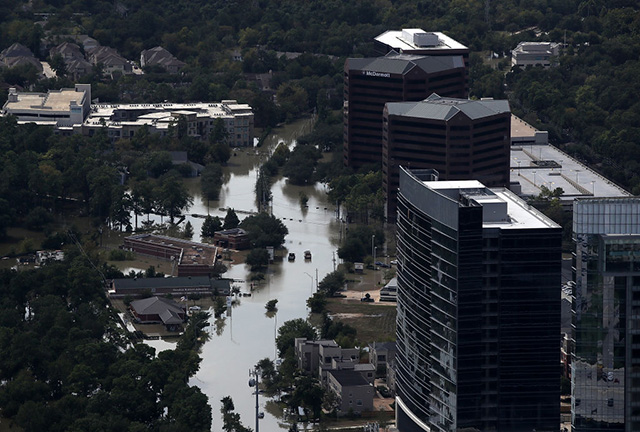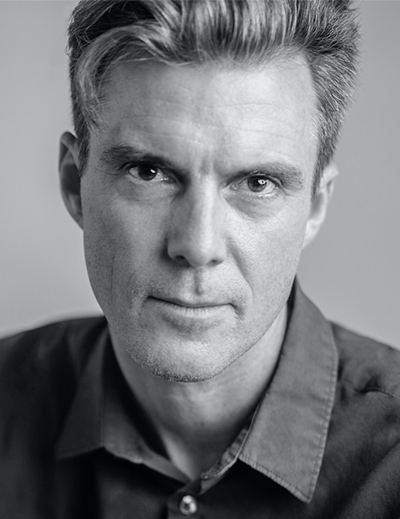
Support justice-driven, accurate and transparent news — make a quick donation to Truthout today!
Climate change is past the point of being resolved by nature’s resilience. Only radical social and economic change will halt global warming and “climate apartheid.” A good place to start is in what Ashley Dawson’s new book calls Extreme Cities, as the author tells Truthout in the following interview.
An economically polarized city is far more likely to leave sections of its population vulnerable to climate change.
Mark Karlin: What are the characteristics of an “extreme city”? Is anything serious being done globally to address our cities under extreme threat from climate change?
Ashley Dawson: Extreme cities are characterized, on the one hand, by dramatic forms of social and economic polarization. This inequality increases their vulnerability to the other form of extremity: the extreme forms of weather generated by climate change, whether these are heavy monsoon rains, storm surges driven by hurricanes or deadly heat waves, to name but a few. Cities are warming at about twice the rate of the planet as a whole, and generate their own climates, as well as being responsible for over 70 percent of global carbon emissions. An economically polarized city is far more likely to leave sections of its population (and physical territory) vulnerable to climate change.
There is a great deal of interesting work being done to climate-proof cities. As I discuss at length in Extreme Cities, some of the most interesting efforts to do so are being undertaken by landscape architects and designers, who are experimenting with ways to make urban life more harmonious with the natural ecosystems upon which all cities rely. Examples include the work of Kate Orff and the SCAPE studio to build protective natural barriers to prevent storm surge-related flooding of coastal communities using reefs made from oysters. This “oyster-tecture” would grow over time as sea levels rise, and the oysters along the reef would also purify significant amounts of coastal waters, providing a boon for other life forms, including fish, birds and humans.
These experiments at “living with water” offer an alternative to traditional engineering approaches, which hinge on building levees and other kinds of barriers to keep floodwaters at bay. All too often, the latter approach ends up worsening problems in the long run, as the flooding of New Orleans after Hurricane Katrina showed. But although these new approaches are inspiring and important, they need to be complemented by efforts to fight environmental and social inequality and injustice. Otherwise the new “natural” barriers to climate catastrophe will benefit only the 1 percent.
 Ashley Dawson (Photo: Verso Books) Can you provide a couple of examples of what you term “climate apartheid” in the book?
Ashley Dawson (Photo: Verso Books) Can you provide a couple of examples of what you term “climate apartheid” in the book?
The outrageous abandonment of Puerto Rico by the Trump administration for almost a week after Hurricane Maria devastated the island is a good example of “climate apartheid.” While Texas and Florida immediately got promises of massive aid from the federal government after they were hit by hurricanes, Puerto Rico was not only given scant help, but is under the control of a Congress-appointed financial oversight board that has been systematically unraveling the island’s critical infrastructures (including their public electricity utility) for the last year.
Resilience has become yet another justification for shrinking down the state and ignoring increasingly rampant inequalities.
So, the term “climate apartheid” alludes to the retreat of global elites (who are responsible for the lion’s share of carbon emissions) into various forms of lifeboats, while the global poor are left to sink or swim. Another good example of climate apartheid is the xenophobia and anti-immigrant hysteria that has overwhelmed Europe as refugees from the political and environmental crisis in Syria have sought harbor in the relatively affluent countries of the European Union.
Again, European countries historically bear disproportionate responsibility for carbon emissions, given their early industrialization, but they are increasingly unwilling to abide by international agreements governing refugees. Such forms of exclusion are the most glaring ones, but we could also think about H-1B visas in the US and similar “guest worker” arrangements in European countries that seek to recruit desirable workers from Global South countries; this is a form of apartheid, since the system as it was originally instituted in South Africa was based not simply on keeping populations “apart,” but also on ensuring a steady supply of workers for capitalist industries like the diamond and gold mines.
Today, as increasing numbers of countries around the world face climate disasters as well as slower forms of ecocide, the wealthy nations of the world are seeing increasingly potent racist movements that want to build high walls, both real and metaphorical.
The recent rash of hurricanes seemed to be connected to climate change only sparingly by the corporate mass media. It appears these massively destructive forces have done little to nudge policy along on climate change. Any thoughts?
Short answer: The revolution will not be televised.
Longer answer…. Although I don’t own a TV, during the few times that I was in front of one during recent weeks, I repeatedly saw weathermen standing in heavy winds and torrential downpours talking about the storms bearing down on them. This seemed a rather ridiculous spectacle, but the corporate media did seem to be serving the public in such instances by telling people where the storms were going and what people needed to do protect themselves.
Radical demands can quickly come to seem acceptable if enough social movement energy gathers behind them.
While it would have been nice to have discussion of the way in which rising carbon emissions are driving ever-fiercer storms more often in the corporate media, I found that these issues were very strenuously underlined by alternative and social media in recent weeks. I think most people sense that there is a connection between the extreme weather of the last month and climate change, and are hungry to know the latest news from scientists in this regard — at least those who are not totally captive to right-wing, climate-change-denying ideologues. US policy is not going to move while the federal government is controlled by these forces — as it presently is — but there’s a massive resistance building to these reactionary trends, including in progressive states and cities like California and New York, and the movement for environmental and climate justice is an important part of this resistance.
What is wrong with the slogan of “resiliency” to deal with climate change?
Resilience is a term from the biological sciences that refers to the ability of complex ecosystems or life forms to withstand and even “bounce back” from various forms of stress. The idea emerged in the life science in the 1970s as a critique of models that presumed ecosystems were static (e.g. the idea of sustainability). In this domain, the idea is important and useful.
The problem, though, is that the notion has been hijacked by a bewildering variety of other discourses. Everyone now wants to be resilient, from anti-terrorist experts at the Department of Homeland Security to financial gurus on Wall Street to urban planners. The term has not only been emptied of much of its meaning, but has come to legitimize neoliberal ideas which shunt responsibility for withstanding the climate crisis onto the shoulders of individuals and communities, no matter how economically or socially marginalized they may be. So, resilience has become yet another justification for shrinking down the state and ignoring increasingly rampant inequalities.
You write that a transition away from capitalism that fosters climate change will require a “lockdown” of roughly $20 trillion in “fossil fuel infrastructure around the world.” Is there any government willing to make a commitment to that, even one?
It depends how you put the question. Are any of the current crop of political leaders talking about throwing oil company executives into prison and seizing their assets? No.
We must stop this engine running pell-mell toward planetary ecocide.
But there are governments that are talking about total decarbonization of their economies. Half of Denmark’s electricity will be produced from wind by 2020, and by 2030, coal will be phased out entirely. By 2035, all of Denmark’s energy demands in electricity and heating will be met by renewable energy — and, by 2050, Denmark has pledged that all of its energy will be clean, safe and renewable. Germany and Spain are not far behind Denmark in their decarbonization ambitions. Solar and wind power are growing very quickly, driven by economies of scale in places like China and India.
The transition is, however, not going fast enough, and will not happen of its own accord — despite the hopes placed in the market by eco-modernists like Al Gore. This is why it is important to put radical demands like a total lockdown of fossil fuel infrastructure (along with plans for a just transition for workers in these industries) on the table now, even if there are no governments presently willing to endorse such demands. While these demands may seem quixotic now, they are what scientists are telling us we should demand if we are to avert planetary ecocide. Radical demands can quickly come to seem acceptable if enough social movement energy gathers behind them.
You state in Extreme Cities that, “We need to step off this treadmill of ceaseless growth if we are to survive as a species.” What are the implications for consumer capitalism?
The other day I bought some garlic at my local supermarket and noticed that it came from China…. As if it wasn’t bad enough that most of the manufactured goods Americans buy are shipped here from half a world away because corporations want to take advantage of dirt-cheap labor and oppression of worker organizing in China, now even the simplest items of food are being shipped — in massive refrigerated container ships, one imagines — similar distances. But it gets even worse: Much of the meat now being consumed in China is being produced with soya produced in the Amazon, where the rainforest — the lungs of the planet — is being chopped down at a record clip.
Contemporary capitalism is a plague on the face of the Earth. And, in addition, it doesn’t even work in its own terms: Economic inequalities are at record levels and the main engine of the capitalist system — the US economy — only keeps going through unsustainable injections of credit. Witness the fact that consumer debt is back at record levels in the US. We must stop this engine running pell-mell toward planetary ecocide. We have nothing to lose but our mind-forged manacles.
Media that fights fascism
Truthout is funded almost entirely by readers — that’s why we can speak truth to power and cut against the mainstream narrative. But independent journalists at Truthout face mounting political repression under Trump.
We rely on your support to survive McCarthyist censorship. Please make a tax-deductible one-time or monthly donation.